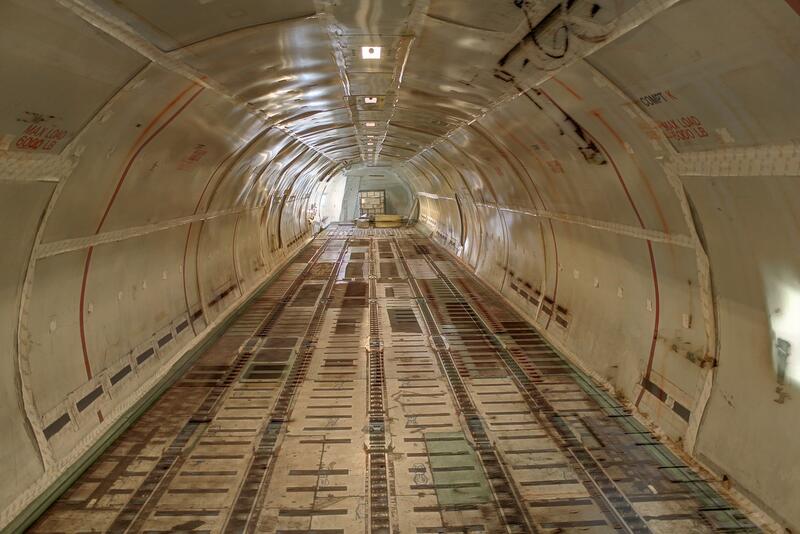Exploring Decarbonization Strategies for Freight air transport and space transport
This article discusses possible decarbonization strategies for both freight air transport and space transport, highlighting the challenges and potential solutions for reducing emissions.

The transportation sector is responsible for a significant amount of global carbon emissions, with freight air transport and space transport being major contributors. Decarbonisation, the process of reducing or eliminating carbon emissions, is crucial for the sustainability of these sectors and the environment as a whole. This article will explore the importance of decarbonisation in freight air transport and space transport, the main sources of carbon emissions, strategies to reduce emissions, challenges facing decarbonisation, and implications for the industry.
Importance of Decarbonisation in Freight Air Transport and Space Transport
Carbon emissions from the transportation sector contribute significantly to climate change. The International Energy Agency (IEA) estimates that transportation accounts for 24% of global CO2 emissions, with aviation alone accounting for 2.5% of global emissions. As the demand for air travel and freight transport continues to grow, so does the need for decarbonisation.
Decarbonisation is essential for the sustainability of the transportation sector and to meet the goals of the Paris Agreement. The Paris Agreement aims to limit global warming to well below 2°C above pre-industrial levels and pursue efforts to limit the temperature increase to 1.5°C. Achieving these goals requires a significant reduction in carbon emissions from all sectors, including transportation.
Main Sources of Carbon Emissions in Freight Air Transport and Space Transport
The main sources of carbon emissions in freight air transport and space transport are fuel combustion and energy use. Jet fuel is the primary source of energy for aircraft, and it is a significant contributor to carbon emissions. The energy used to power space vehicles also contributes to carbon emissions.
In addition to fuel combustion, other sources of emissions in the transportation sector include aircraft manufacturing, maintenance, and disposal. These activities require energy and resources, which contribute to carbon emissions.
Reducing Carbon Emissions in Freight Air Transport and Space Transport
Reducing carbon emissions in freight air transport and space transport requires a combination of strategies, including technological advancements, operational improvements, and alternative fuels.
Technological advancements such as electric and hybrid aircraft and space vehicles can significantly reduce carbon emissions. Electric aircraft are already in development, and they have the potential to revolutionize the industry. Hybrid aircraft, which use a combination of electric and traditional fuel engines, can also reduce emissions.
Operational improvements, such as optimizing flight routes and reducing idle time on the ground, can also reduce emissions. The use of sustainable aviation fuels (SAFs) is another strategy to reduce carbon emissions. SAFs are made from renewable sources such as waste cooking oil, agricultural residues, and municipal solid waste.
Challenges Facing Decarbonisation in Freight Air Transport and Space Transport
The challenges facing decarbonisation in freight air transport and space transport are significant. One of the main challenges is the high cost of alternative fuels and technologies. Electric and hybrid aircraft are still in the development phase, and their cost is currently higher than traditional aircraft.
Another challenge is the lack of infrastructure for alternative fuels. The production and distribution of SAFs are still in the early stages, and there is a limited supply chain. The lack of infrastructure for electric aircraft and space vehicles is also a significant challenge.
The regulatory environment is another challenge facing decarbonisation. Regulations and policies need to be in place to incentivize the use of alternative fuels and technologies. However, the regulatory environment is complex, and it can take time to implement changes.
Implications of Decarbonisation for Freight Air Transport and Space Transport
Decarbonisation will have significant implications for the freight air transport and space transport sectors. The transition to alternative fuels and technologies will require significant investment and changes in the industry. The development of electric and hybrid aircraft and space vehicles will create new opportunities for innovation and growth.
The use of alternative fuels and technologies will also have a positive impact on the environment. Reduced carbon emissions will help to mitigate the effects of climate change and improve air quality. The use of SAFs can also help to reduce the industry's reliance on fossil fuels, which are a finite resource.
Conclusion
Decarbonisation is essential for the sustainability of the freight air transport and space transport sectors and the environment as a whole. The main sources of carbon emissions in these sectors are fuel combustion and energy use. Strategies to reduce emissions include technological advancements, operational improvements, and alternative fuels.
The challenges facing decarbonisation in these sectors are significant, including the high cost of alternative fuels and technologies, the lack of infrastructure, and the regulatory environment. However, the transition to alternative fuels and technologies will create new opportunities for innovation and growth and have a positive impact on the environment. Decarbonisation is essential for the future of the freight air transport and space transport sectors and the planet.